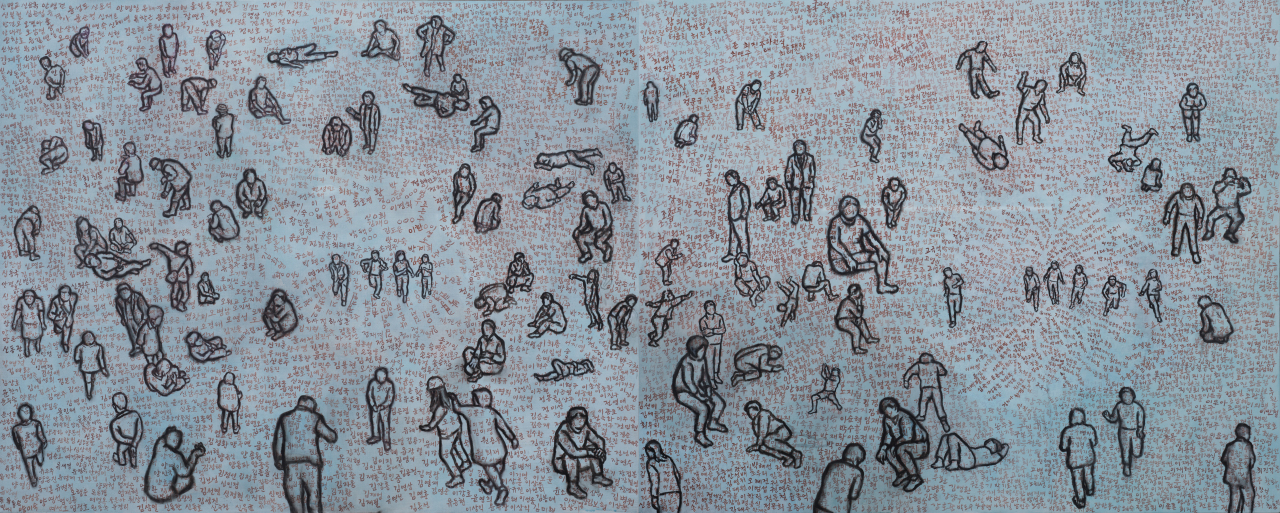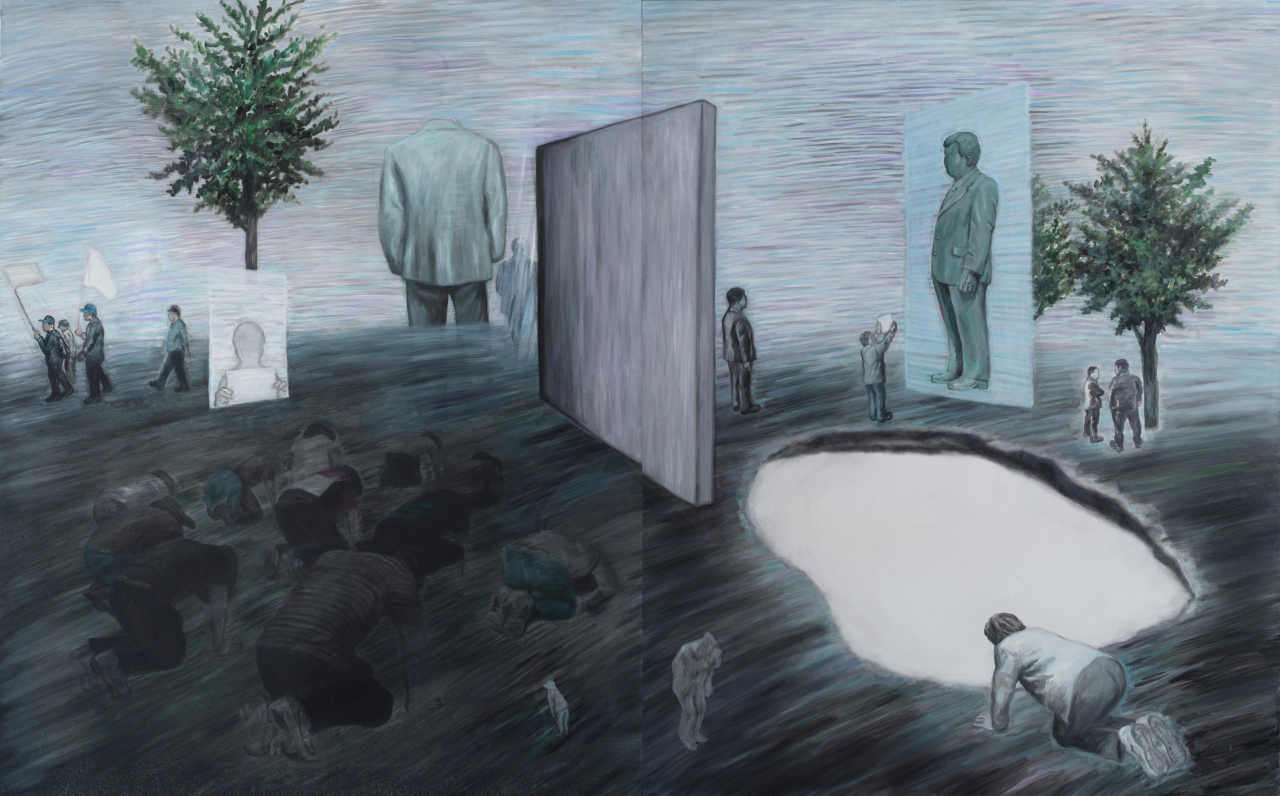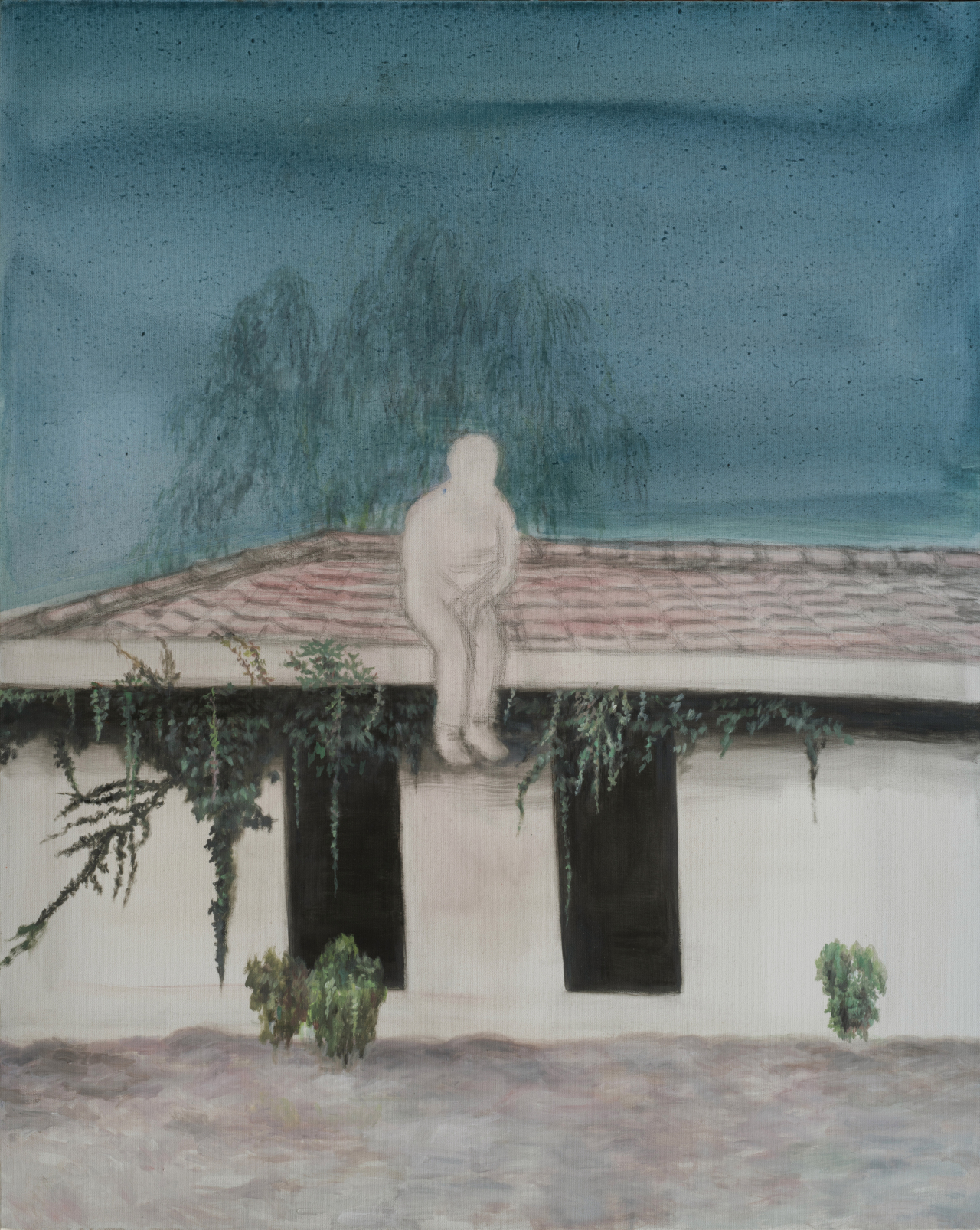Just a few minutes ahead of the exhibition tour on Thursday, Nho Won-hee, 71, asked visitors for their names. With a pen in her hand, Nho approached her painting “People in the Square” (2018) and started to write their names on the canvas.
“It’s OK,” she said of her rather unusual decision to modify a work on display on the spot. “I have already been adding the names of the people who came to see the exhibition. I have been adding any names of individuals, both those I love and those I hate, with my best wishes,” she said.
 |
“People in the Square” (2018) by Nho Won-hee (Hakgojae Gallery) |
“People in the Square,” part of Nho’s solo exhibition at Hakgojae Gallery, includes the names of many people, including victims of the Sewol ferry disaster and Samsung Semiconductors workers who got leukemia on the job. That is Noh’s tribute to the victims.
The exhibition, titled “On Thin Land,” features 36 works produced between 1995 and 2019 by Nho, a minjung artist whose works tackle social and political issues, as well as individual struggles for survival.
At the press conference, Nho described contemporary South Korean society as unsettling. “The reality that I see these days seems very vulnerable. The ground we stand on feels thinner than ever, and you never know when things may go wrong,” Nho said.
 |
“On Thin Land” (2019) by Nho Won-hee (Hakgojae Gallery) |
“On Thin Land” (2019), the work that gives the exhibition its name, depicts a scene near the Blue House in Seoul on a hot summer day when Hyundai Heavy Industries workers performed “sambo ilbae” during a labor rights rally. The practice, borrowed from the Buddhist tradition, involves taking three steps and making one deep bow with knees and elbows on the ground and is often used in protests here as a show of determination.
Nho is one of a few female artists of her age who have brought women’s issues to the fore.
“It did not feel like I was discriminated against when I was a young artist -- though it could have been that I just did not realize it. Anyway, compared to the past, I still feel more supported now,” Nho said.
“Taking Up a Weapon” (2018) is a black-and-white oil painting of housewives holding pans and rallying that shows Nho’s take on the #MeToo movement in Korea, as well as the unequal treatment of women in general. “When I looked back, there had not been an opportunity to think of women’s issues even though I must have lived with them,” said the artist, who has lived as a housewife for almost four decades. “I watched the whole #MeToo movement development in the last year and saw the overwhelming difficulties that still exist.”
Nho often portrays recent sociopolitical issues, yet she also sometimes bases her works on personal and emotional memories.
 |
“One Who Wants to Sit on the Rooftop” (2018) by Nho Won-hee (Hakgojae Gallery) |
“One Who Wants to Sit on the Rooftop” (2018) is based on the memory of her brother, who died in a car accident when he was 35.
“When I was very young, we had a tree in our yard. The tree had three large boughs, and my brother set up a Chinese chessboard in the middle to sit on it. I remember myself wanting to go up there. But my brother would not let me. The spot now feels like an aloof space you can perhaps return to and sit, away from all the complicated worldly affairs,” Nho said.
The exhibition runs through Dec. 1.
By Shim Woo-hyun(
ws@heraldcorp.com)








![[Herald Interview] 'Trump will use tariffs as first line of defense for American manufacturing'](http://res.heraldm.com/phpwas/restmb_idxmake.php?idx=644&simg=/content/image/2024/11/26/20241126050017_0.jpg)
![[Exclusive] Hyundai Mobis eyes closer ties with BYD](http://res.heraldm.com/phpwas/restmb_idxmake.php?idx=644&simg=/content/image/2024/11/25/20241125050044_0.jpg)
